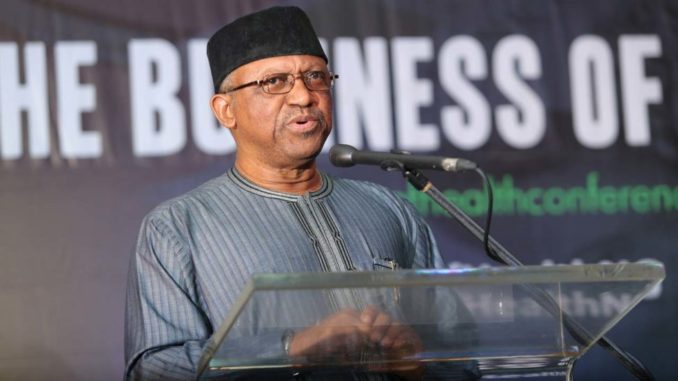
More reasons have emerged why Nigeria ranked fifth among eight countries with the highest burden of Tuberculosis (TB) in 2018 namely: Bangladesh, China, India, Indonesia, Nigeria, Pakistan, the Philippines and South Africa.
However, in the World Health Organisation’s (WHO’s) latest Global TB Report, released yesterday, Brazil, China, the Russian Federation and Zimbabwe, which have high TB burdens, achieved treatment coverage levels of more than 80 per cent.
The WHO cautioned that although more people received life-saving treatment for TB in 2018 than ever before, largely due to improved detection and diagnosis, only seven million of the 10 million that developed the disease last year, received treatment.
According to the report, in Nigeria and many countries today, underfunding, fragile health infrastructure and workforce shortages make it difficult to provide timely diagnosis and the right treatments for TB.
The report also noted that weak reporting systems constitute another challenge: health providers may treat people but fail to report cases to national authorities, leaving an incomplete picture of national epidemics and service needs; and up to 80 per cent of TB patients in high burden countries spend more than 20 per cent of their annual household income on treating the disease.
TB, caused by bacteria (Mycobacterium tuberculosis), mostly often affects the lungs. Tuberculosis is curable and preventable.
According to the report, about one-quarter of the world’s population has latent TB, which means people have been infected by TB bacteria but are not (yet) ill with the disease and cannot transmit it.
The report noted that globally, seven million people were diagnosed and treated for TB – up from 6.4 million in 2017 – enabling the world to meet one of the milestones towards the United Nations political declaration targets on TB.
WHO’s latest Global TB Report noted that 2018 also saw a reduction in the number of TB deaths: 1.5 million people died from TB in 2018, down from 1.6 million in 2017.
Meanwhile, the Federal Ministry of Health (FMoH) and the National Agency for the Control of AIDS (NACA) has advanced reasons why the country pledged N4.338 billion ($12million) to fight Human Immuno-deficiency Virus (HIV), Tuberculosis (TB) and malaria at the just concluded Sixth Global Fund Replenishment Conference in Lyon, France.
Head, Public Relations and Protocol Division, NACA, Toyin Aderibigbe, said Nigeria supported the international community in its commitment to increasing funding for health and disease programmes by pledging $12 million (20 per cent increase) to the Global Fund.
Minister of Health, Dr. Osagie Ehanire, said: “Building on the concept of shared responsibility, Nigeria ensured through the ongoing budgetary process that President Muhammadu Buhari’s commitment at the United Nations General Assembly in 2017 to make N3.5b available to put an additional 50,000 Nigerians on life-saving antiretroviral therapy every year is realised.
Director General of NACA, Dr. Gambo Aliyu, said: “The continued Government of Nigeria funding for growing the National Treatment and Prevention Programmes is vital for the sustainability of AIDS response. I appeal to all governors to equally commit to investing to end AIDS in Nigeria as a public health threat by 2030.
END

Be the first to comment